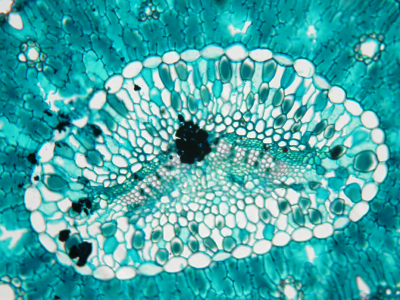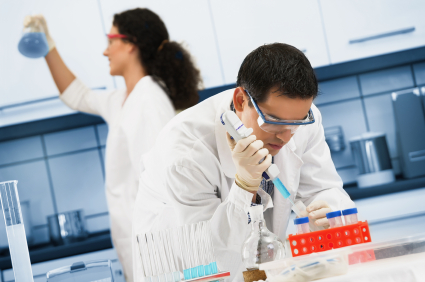Biologist (biomarkers)
 |
So, what do you do?
Currently I am doing in vitro work looking at biomarkers for various therapeutic areas in the company. I have recently been granted a Home Office license to do in vivo work and have started my training.
My job is mostly lab based, but occasionally I devote days to literature research or keeping my paperwork in order.
How has your career developed since you entered the industry?
Although I only began my current role five months ago, there have been several developments. The first is that I was given responsibility for our main lab, keeping it a safe place to work and ensuring everything runs smoothly. Having gained a Home Office License I will be moving to do more in vivo work in the near future.
Do you work mostly on your own or as part of team?
The in vitro work I usually do on my own, although there are always other people in the lab. The in vivo work I will be moving to is much more of a team effort.
Why did you decide on a career in the Pharmaceutical Industry?
I have always enjoyed science, especially biology, and a career in the pharmaceutical industry seemed a natural progression from that interest.
When did you make this decision?
I decided pretty early on that I wanted to work for a pharmaceutical company, when I was in year 11. We were asked to look at the careers library and find something interesting. I found pharmacology which seemed interesting and gave plenty of opportunities in industry.
When I got to university, I wanted to do an Industrial Placement year, but it was not offered as part of the course. However, after a few discussions with my tutor he gave me an application form for the company’s Industrial Placement scheme. I got a place on the scheme and suspended my studies for a year to take the job. I enjoyed the placement and that further reinforced my decision to take a career in the pharmaceutical industry.
What qualifications and experience do you have?
When I started at this company in 2005 on a placement year I was a Pharmacology undergraduate at the University of Liverpool. I had 11 GCSEs and A-levels in Biology, Chemistry and Physics. I returned to University in 2006 to complete my degree and now have a 2:1 degree in Pharmacology BSc (Hons).
Do you think additional qualifications or experience would be an advantage for someone entering the industry?
In my opinion the most important thing is to have practical experience of working in an industrial laboratory setting.
What is it like socially where you work?
There is a very friendly social atmosphere at work and I have many friends in lots of different departments.
What are you most proud of in your career?
I am proud of the work I did during my placement year, which I have presented at several internal poster sessions. It was also presented by my colleagues at an IUPHAR meeting in China in 2006.
What possibilities are there for your career in the future?
I plan to progress within my current role as an in vivo scientist, but in the future I could take on a more managerial role if I wanted, or I could join one of the therapeutic areas and concentrate on in vitro work in one specific area. The good thing about this company is there is no limit to how far I can progress up the career ladder!
What do you think are the most important skills for someone in your role to have?
Practical knowledge is essential; as is a good understanding of the science behind whatever project I happen to be working on. I try to do as much background reading as possible. I think good communication skills are important too, as my job involves communicating with people in many different areas of the company.
What one piece of advice would you give to someone seeking a career in the pharmaceutical industry?
Don’t just settle for the opportunities that you can see. If you want to do a placement year and it’s not offered on your course, it’s not the end of the world. Take the initiative, look around and talk to people, even if it means suspending your studies, in my experience it’s definitely worth it!
Case study
 I am on a rotation scheme that my company runs for graduates, which involves moving from one therapeutic area to another over a course of 2 years
I am on a rotation scheme that my company runs for graduates, which involves moving from one therapeutic area to another over a course of 2 years
